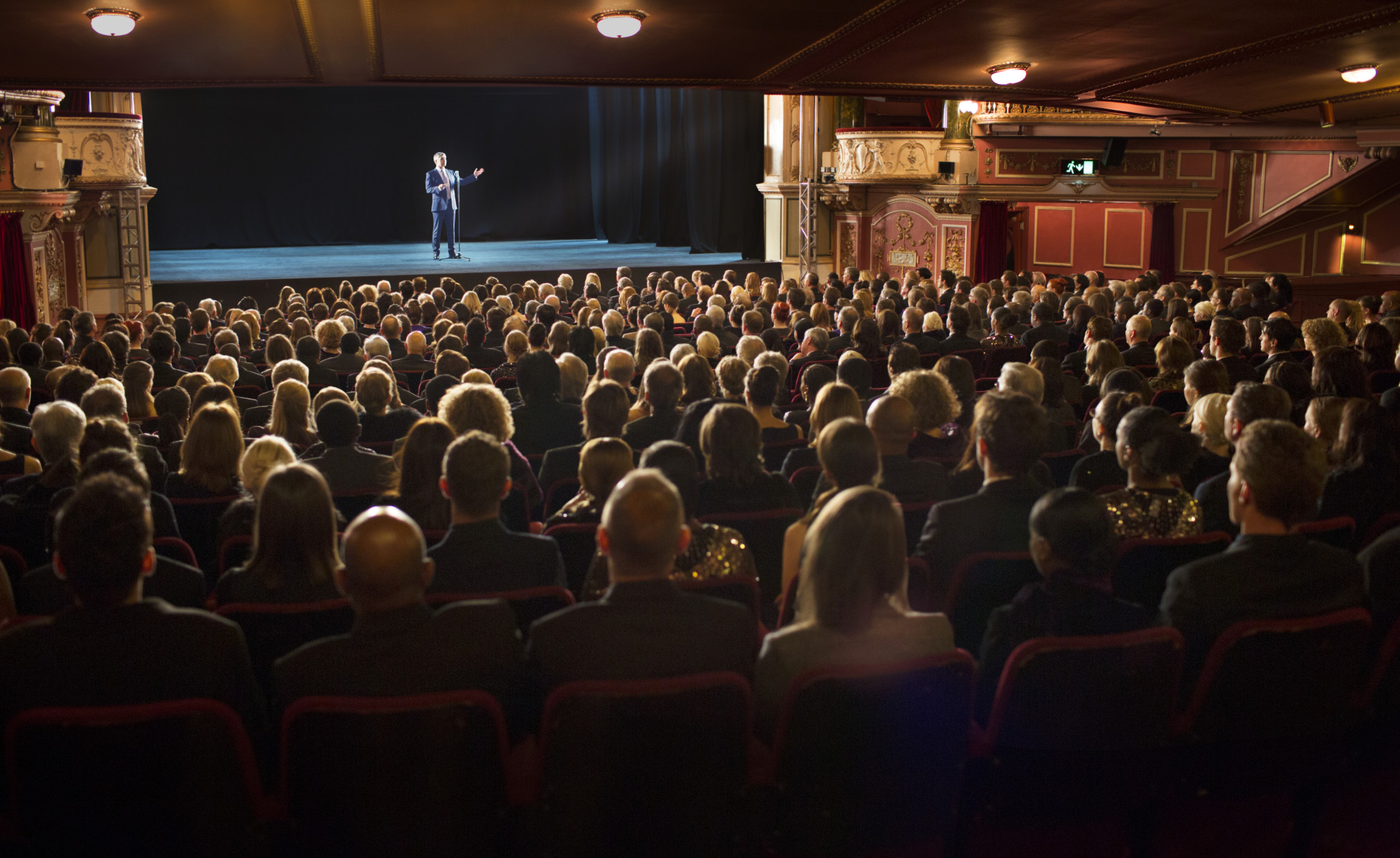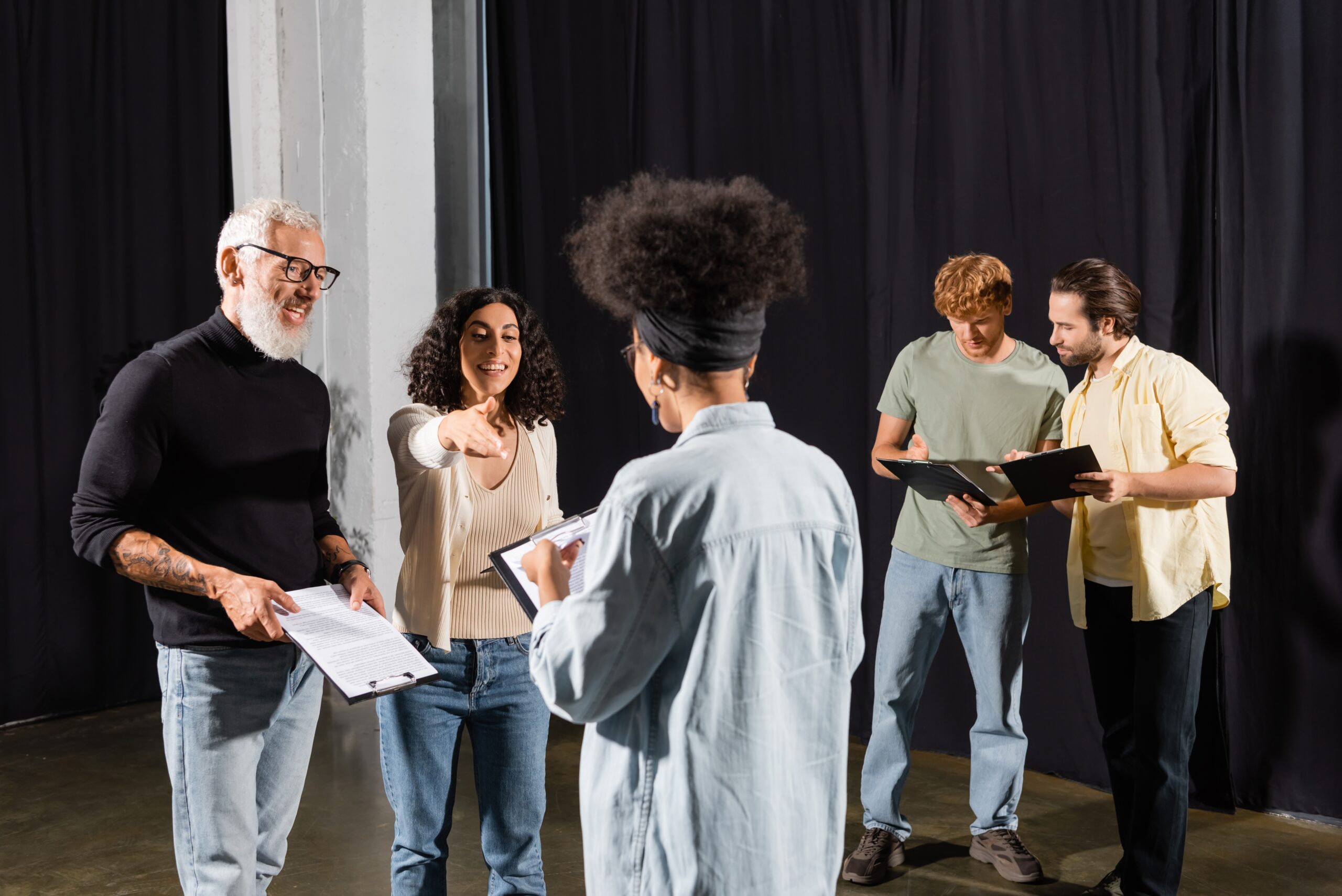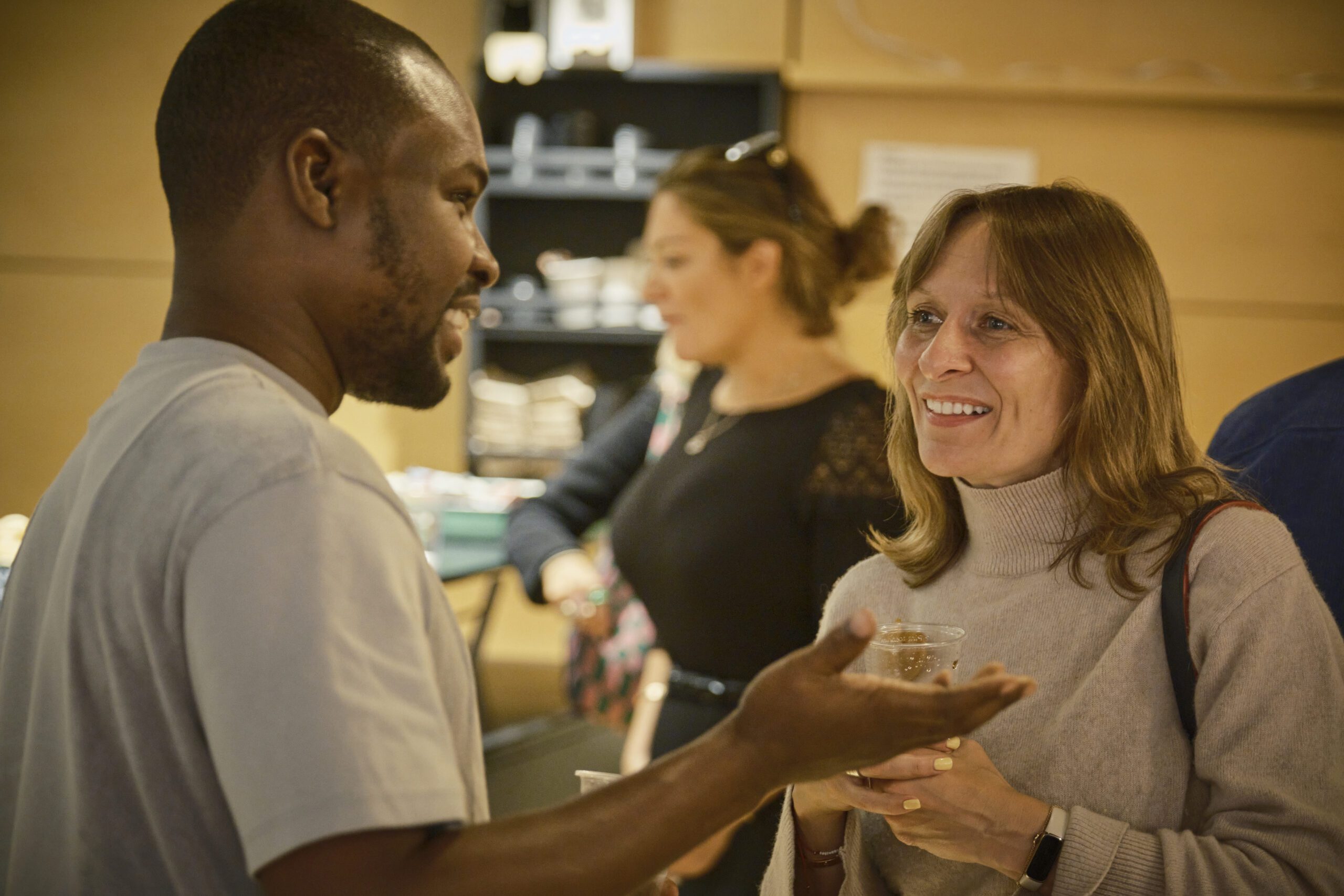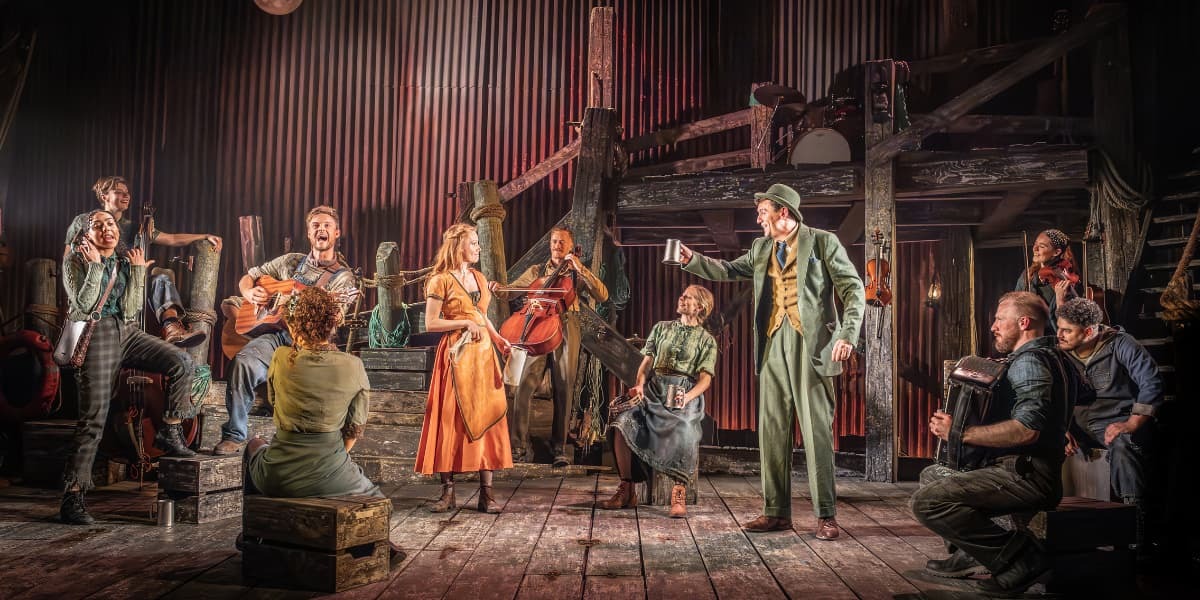Four tips to help serial screen performers who are treading the boards for the first time
The institution of acting in this country starts out on the stage. In the theatre, at drama school, or in scene study classes, we learn to tread the boards, fill the space, and successfully transmit the story across to an audience, whether they’re sat three feet from our toes, or right up in the rafters peering down on us like judgemental gods.
But, we’re now in a day where the majority of auditions that actors are seen for are screen roles and many of us are used to being in front of cameras and all sorts of devices, making skits and reels for Instagram and Tiktok. So, the question is: how do we backtrack and translate the minutiae of screen acting into the all-encompassing, energy-demanding force that is performing on stage?
After spending the last five years in TV, and having just returned to the theatre performing in James Graham’s dazzling Best of Enemies, here’s my take on moving from screen to stage.
1. Limber up
Screen acting is all about the suspension of energy in order to maintain the strength of your performance from take one to 100. Immense energy is required but it’s a slow and steady process, interspersed with periods of rest and recharge.
The energy an actor channels onstage in every show is a full-tilt maximal burst, for the entire duration of your time on stage. It’s fuelled by the momentum of the story, the moves and actions of your fellow actors, and the feedback of the audience. Your pulse races, sweat rolls down the crease of your back, and adrenaline pumps through your body for the two hours or so that you move through the play. Your body is recruited in a way much more similar to that of an athlete or dancer. The stage demands full commitment. Body, and soul. From start to end, with no respite.
2. Leave your ego at the door
From the moment you arrive on a TV or film set, hierarchy is on blatant display everywhere you look. From being assigned a number on the call sheet (the lower the number the higher the status), to the size of trailers and the segregation of ‘supporting artists’ from actors, it’s impossible to ignore the status that you’re allocated.
Theatre is, by its very nature, a much humbler and more intimate exercise. In part because of the financial gulf when compared to screen acting, everyone is there out of genuine passion and excitement for the project, so everyone mucks in no matter their status. On week one of rehearsals for Best of Enemies, I found myself screaming at an imaginary gated parliamentary building, shoulder to shoulder with David Harewood OBE as we threw non-existent incendiaries and very existent chairs at the ‘gates’ in protest of the Vietnam war in 1969.
One of the joys of this profession, highlighted when doing a play, is simply the ‘play’ aspect of it. Theatre brings people from different generations and backgrounds into one space, stripping us of any preconceived notions of class, status, experience, or ability. We’re allowed to release our imaginations in a way that most people won’t have had the chance to do since childhood.
It’s a team exercise, everyone has each other’s back, harking back to the rich tradition of repertory theatre with actors in a company becoming like a family. Through improvisations, the breakdown of research, conversations and debate, we nurture and build the story together, every one of us having a voice.
3. Read the script from start to end and back again
While working on TNT and Netflix’s Snowpiercer, actors would routinely roll up to set without looking at a script prior to the day, because, within our format, we’d often be working with very short bitty scenes, and would occasionally get script rewrites on the day. The focus there was on being alive and truthful in the moment. As long as you understand the given circumstances, you can give a performance. One can also, despite onset etiquette, afford to be selfish. When not on camera, some actors get away with not delivering the same performance they will when it’s their close-up.
On stage, you’re never invisible. You can’t turn up unprepared. As soon as you step on stage and the lights come up, you’re a part of the telling of the story, and the audience may notice any momentary lapse in concentration or engagement.
If screen acting is a lesson in energy suspension (knowing when to squeeze the throttle or pull it back) stage acting is a lesson in using every last drop of energy available to you. There are no brakes, you hit the ground at full speed and you don’t stop until the curtain falls.
4. Become wedded to your cues
As an actor on set, the crew waits for you. You’re ferried from place to place and walked from trailer to set as dictated by an assistant director. It isn’t your responsibility to get anywhere at a certain time, someone will come and fetch you and physically bring you to where you need to be.
No one waits for you on stage. If you miss your cue, the ball is dropped. The audience sits in awkward silence, and the actors abandoned onstage are left to improvise a measure of congruence until you arrive in a panic of sweat and breathlessness.
Things are in constant flux on set. You may be waiting for hours in the trailer until you’re called to shoot for 10 minutes before being wrapped for the day. Or you could be on set immediately after breakfast and be dragging yourself face-first through a muddy river again and again way past the intended wrap time.
Onstage everything runs like clockwork, every show, every night, without fail. The paying audience is awaiting a performance at the time dictated on their tickets and there’s no room for lateness.
After each performance, the Deputy Stage manager often informs the cast over the tannoy how long the first and second halves were. They let us know whether we were particularly sluggish or pacey on any given night, allowing for the hopeful audience laughs and gasps and cheers or lack thereof. Despite these minor aggregations, the performance always sits within a two or three-minute window. Like an oiled machine, it glides towards its end right on time every night, and the actors within it are the cogs and pistons that guide it to that ultimate destination.
So there you go, you’re now ready to look forward to the first time you forget your lines in front of a full house of confused faces staring up at you as you wait in silence for words that seem to have vanished into thin air. It’s an adrenaline rush like no other.
 Actor, singer and writer Sam Otto made his television debut as the male lead in Peter Kosminsky’s explosive BAFTA nominated drama ‘The State’, just out of drama school, leading to recognition by Screen International as one of their ‘Stars of Tomorrow’ for 2017, before undertaking a series regular role in TNT and Netflix’s Emmy nominated ‘Snowpiercer’, recently wrapping its fourth and final season, to air at the beginning of 2023. Sam will next be seen on stage in James Graham’s Olivier-nominated play ‘Best of Enemies’ at the Noel Coward Theatre, after a sold-out run at The Young Vic. Alongside acting, Sam can often be found singing original and adapted songs on his Instagram @_samotto.
Actor, singer and writer Sam Otto made his television debut as the male lead in Peter Kosminsky’s explosive BAFTA nominated drama ‘The State’, just out of drama school, leading to recognition by Screen International as one of their ‘Stars of Tomorrow’ for 2017, before undertaking a series regular role in TNT and Netflix’s Emmy nominated ‘Snowpiercer’, recently wrapping its fourth and final season, to air at the beginning of 2023. Sam will next be seen on stage in James Graham’s Olivier-nominated play ‘Best of Enemies’ at the Noel Coward Theatre, after a sold-out run at The Young Vic. Alongside acting, Sam can often be found singing original and adapted songs on his Instagram @_samotto.
Headshot by Jack Alexander.
Photo credit: Caiaimage/Robert Daly / iStock



















